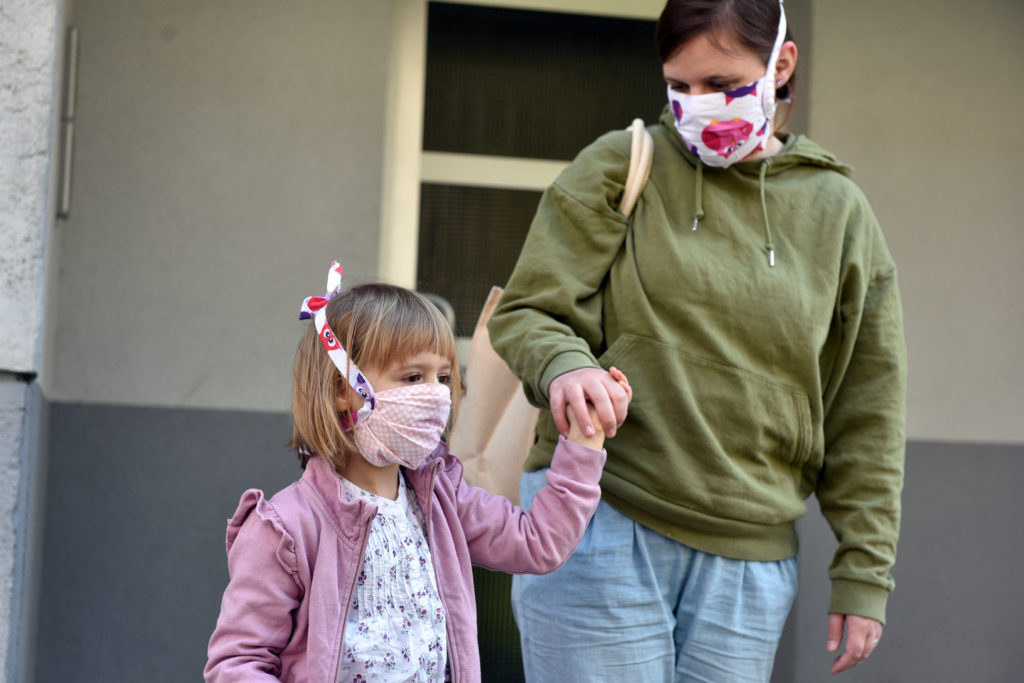The COVID-19 public health and economic crisis is bigger than any seen in our lifetimes, leaving tens of thousands of Mainers struggling to work, feed their families, and keep a roof over their heads.
Responses collected by the US Census Bureau’s Household Pulse Survey in Maine for the two weeks ending February 1 show levels of hardship at or near their pandemic worst.
Mainers need Congress to act fast to meet the urgency of the moment. If a new COVID relief package is not enacted soon, the special unemployment assistance program created to meet this crisis will expire, making matters even worse for families all over our state.
The House of Representatives is currently crafting a pandemic relief package based on President Joe Biden’s American Rescue Plan. While some elected officials have quibbled with the size of the House bill, a broad range of economists and policy experts , including Federal Reserve Chairman Jerome Powell, are warning that the danger at this moment is in doing too little, not too much.
Everyone agrees that families and communities need relief. The House bill is the only vehicle with any chance of passing the Congress and delivering the help we need. Maine’s delegation should support it.
Tens of thousands remain out of work
The latest unemployment insurance numbers in Maine show that 50,000 Mainers are still out of work due to the pandemic. These layoffs are heavily concentrated among industries that depend on in-person business, such as restaurants, hotels, and movie theaters. Many of these businesses are either operating at a fraction of their former capacity or are effectively closed because of the danger posed by the pandemic. These Mainers will not be able to return to work until the public health emergency passes. But continued federal unemployment benefits are set to expire for many on March 14.
Congress must approve the extension through September proposed by the President.
Basic needs such as food and housing are going unmet
For some Mainers, the financial strain is so acute that basic needs are going unmet. During the survey period, just over 155,000 Mainers were behind on mortgage payments or rent.
While tenants are theoretically safe from eviction due to a federal moratorium, in reality, some landlords are pursuing evictions anyway. President Biden’s relief proposal contains $30 billion to help renters pay down what they owe their landlords. Without direct rent relief, even those Mainers protected by the eviction moratorium will face a risk of housing loss when the moratorium ends and several months of back rent comes due.
Along with shelter, many Mainers are also struggling to afford enough food to eat. In the most recent survey period, one in 10 adults — equivalent to about 102,000 Mainers — reported their household “sometimes” or “often” didn’t have enough food to eat. President Biden’s plan would send help to food-insecure families with additional funding for the Supplemental Nutrition Assistance Program and the Women, Infants, and Children program.
Financial worry is widespread
It’s not only Mainers who have lost their jobs who are experiencing hardship. The latest batch of Census data shows that many Mainers are struggling to make ends meet, and even more are worried about doing so in future.
During the survey period, 27 percent of adults (equivalent to more than 280,000 people) said they found it “somewhat” or “very” difficult to pay usual household expenses, such as rent, utilities, medical bills, or food. Even more people — almost 385,000 Mainers — were spending less money than usual, either because they had suffered a loss in income or because they were worried about their financial futures.
This combination of lower incomes and dented confidence is stressful for individuals and bad for the economy. With so many Mainers lacking funds or worried about a future loss of income, less money is being spent at Maine businesses.
The president’s proposal to issue $1,400 payments to most Americans would provide Mainers with a sense of stability in their personal situations and would likely lead to more spending in the local economy, boosting businesses and supporting the recovery.
Biden’s plan meets the urgency of the moment
The data continues to show widespread suffering and hardship for Mainers. Without a robust federal aid package, the situation will worsen and the recovery will be slower.
With the continued rollout of vaccines, the end of the public health emergency is in sight. But in the meantime, the data shows ongoing, widespread hardship for Mainers. Our elected officials must address that hardship now, so that all Mainers can participate in the recovery when the public health crisis has subsided.
The need is clear, and the biggest danger is doing too little and causing long-term economic and social harm.




